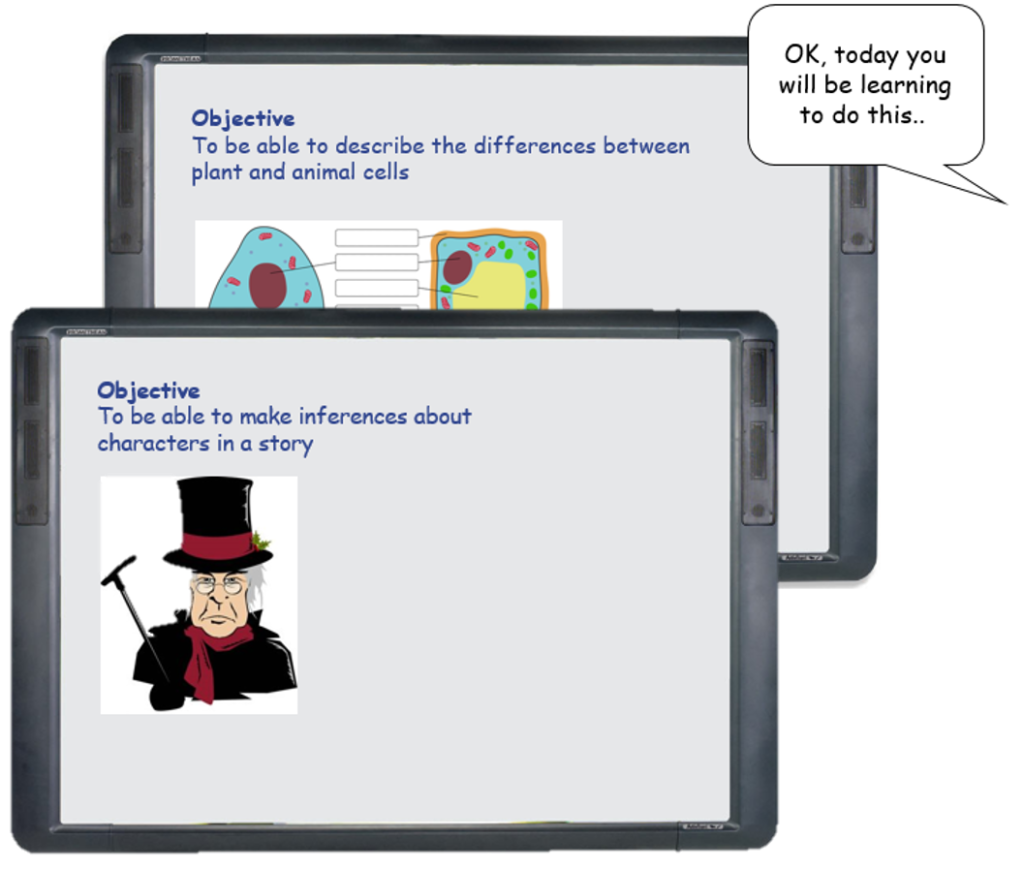A ‘key learning question’ is simply a way of framing the learning in a lesson or across a sequence of lessons – of setting the learning agenda for pupils. It is an alternative to the traditional ‘learning objective’, replacing a statement of what pupils will learn, or of what they will aim to learn, with a thought-provoking question, which the teaching and the learning will then address or try to answer.
This post was written in response to requests from schools for a simple introduction to their use. Any corrections, criticisms or suggestions are very welcome!
Traditional ‘learning objectives‘
Typically, learning objectives shared with pupils at the start of a lesson have been designed to make very clear what it is expected will be learned in that lesson.

There are several risks with this. Arguably, it is a sort of spoiler – it takes away any engaging mystery or suspense. More importantly, it is potentially narrowing: this is – by implication – all that has to (or will) be learned. And it is potentially suppressing of attainment: this is as far as it is necessary to go or to think. It can be unambitious – unchallenging. What else might pupils learn or become better able to do? What might some attain to? Where else might the learning go?
Continue reading “Key learning questions – an introduction”


